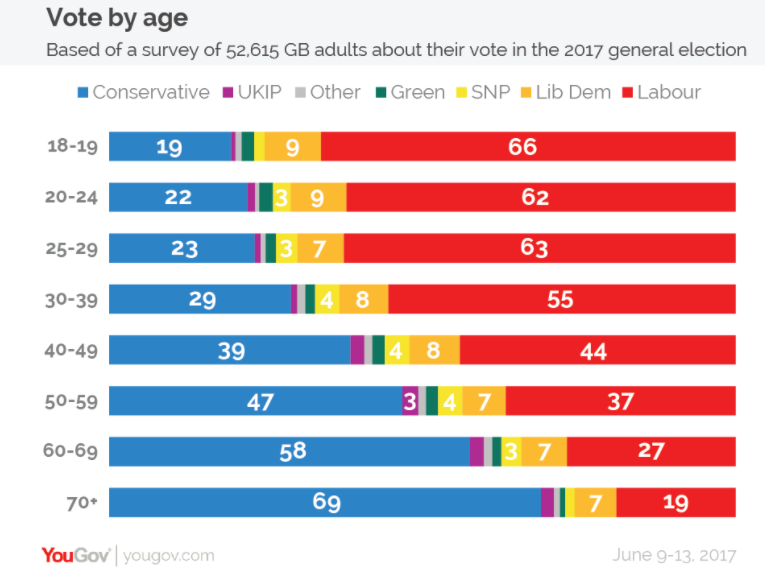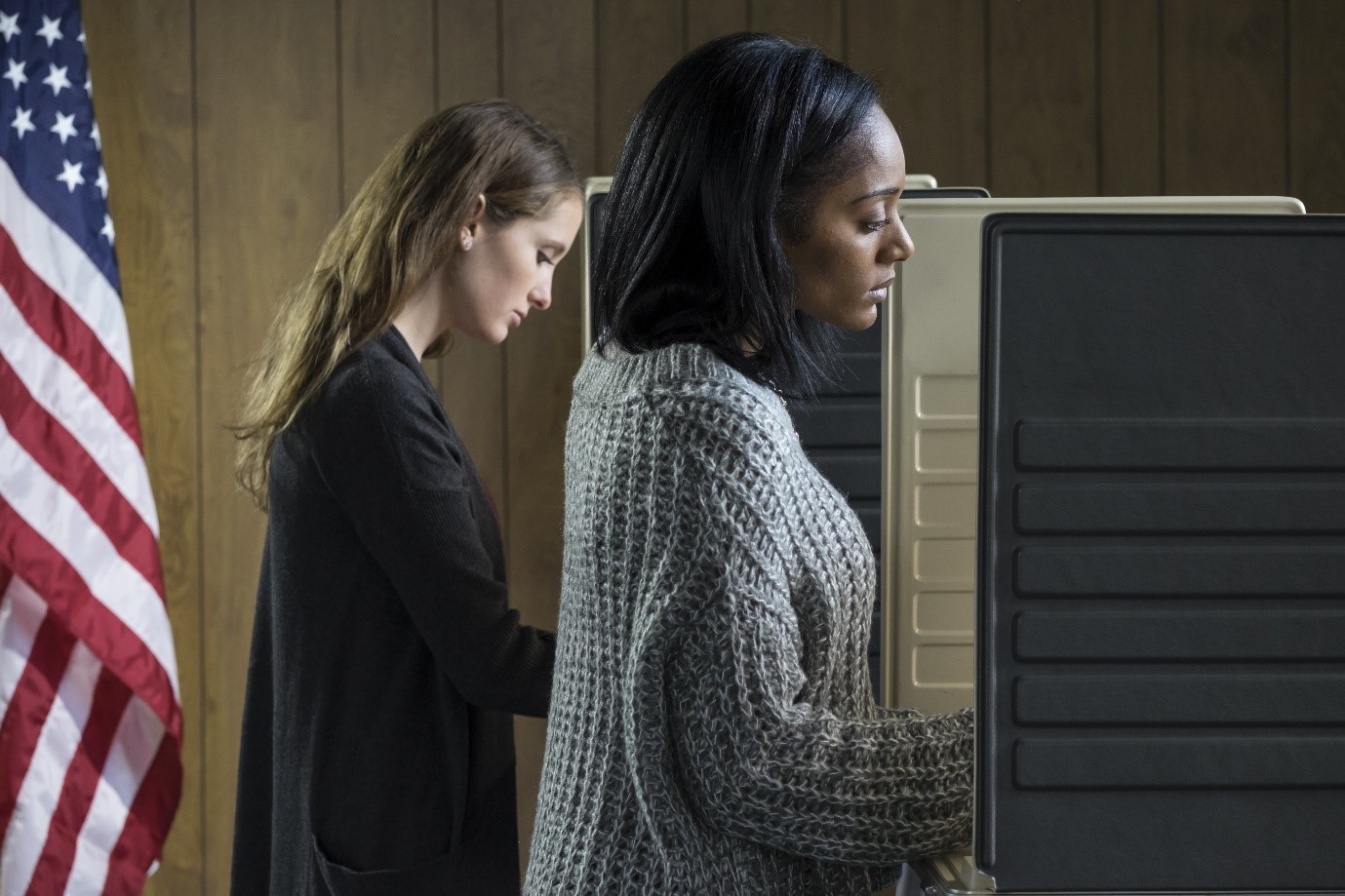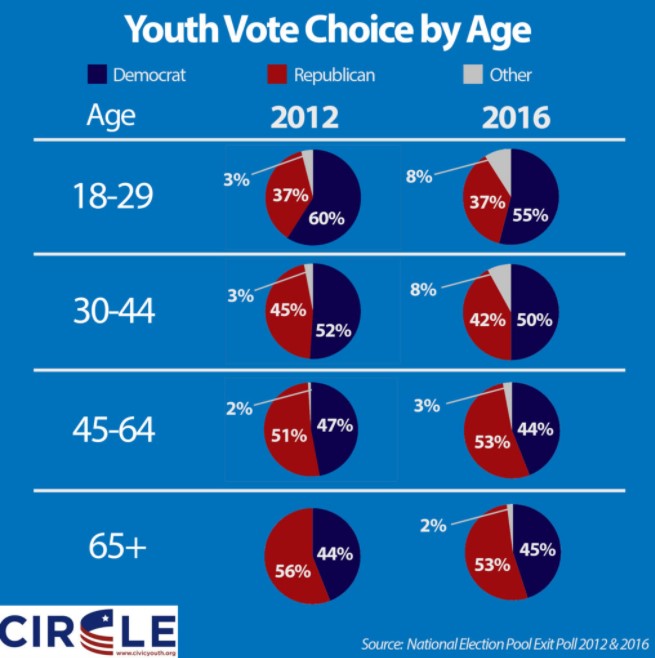Why aren't young people engaged with governments?
Today’s young adults have grown up online, connected in ways that their older counterparts are unlikely to ever fully understand. In the developed world in particular, the so-called “digital natives” have had access to an effectively limitless source of news, information and entertainment their entire lives.
So it is something of a paradox that the world’s hyper-connected millennials seem to feel so completely disconnected from those in power. It is striking that when it comes to politics there is a significant - and rapidly growing - generational divide.
The victory of Donald Trump in the US presidential campaign and the UK’s decision to leave the European Union are just two examples of the gulf between younger and older voters leading policymakers around the world to ask how they can engage young people more in their governmental and economic processes.Source: Shutterstock.com
Not apathetic but angry
With hindsight, a rumbling in the UK’s political establishment during the selection of a new leader for the opposition Labour party in 2015 signalled the way that younger people were engaging with political systems in the smartphone era.
Each of the party’s half million members had a vote and the unlikely winner was Jeremy Corbyn, who had offered what many saw as radical left-wing ideas that were unlikely to chime with older members but which appealed to the young.
As the Financial Times later reported, his 250,000 supporters were communicating on social media and via hashtags such as #jezwecan in a way his rivals were not. He “took on the Labour party establishment and a hostile mainstream media and blew them both away”, the FT said.
Pollster YouGov found that 60% of pro-Corbyn voters used social media as their main sources of news.
And in the 2017 UK general election, while the Conservatives still won, the party’s majority was much reduced in part thanks to younger voters climbing on the Corbyn band-wagon.

Image: YouGov
This issue of engagement isn’t confined to western democracies. In the Middle East, governments are concerned about how to encourage young people to play a bigger role in civil society.
On the African continent, governments seek to encourage young people into entrepreneurial careers as they seek to diversify away from oil and agriculture-based economies.
So the same question is being asked in many different languages. But is the answer going to be the same too?
Youth without a voice
Writing presciently just before Donald Trump was elected last year, Sarah Yerkes, a fellow at the American think-tank the Brookings Institution, compared youth engagement with the presidential campaign to the 2014 election in Tunisia.
In both contests, she said, candidates were from an older demographic, one representing the status-quo, the other promising change, but neither addressing the concerns of young people.
What seemed to be missing entirely, Yerkes suggests, were the voices of young people or those who spoke for them.
A comparison of the youth turnout in the 2012 and 2016 US elections. Image: Circle/NEPEP
Various countries have taken steps to address this problem.
In the UAE, for example, Shamma Al Mazrui was appointed as minister for youth in 2016, becoming the youngest government minister in the world at 22.
The Emirates have established a National Youth Council, over which Al Mazuri presides. The aim of these is “to empower UAE youth to become a model in the leadership of the youth of the world in all fields. This vision is focused on providing youth education and interacting with them by listening to their young ideas and ideas and then applying them on the ground.”
The UK has a Youth Parliament which debates issues in the House of Commons once a year. In 2017, nearly a million young people aged 11-18 took part in an ballot to decide which topics should be discussed. These included developing a curriculum for life, covering finance, sex and relationships, and politics, and lowering the voting age to 16.
However, the Youth Parliament was described as “tokenism” in a University of Colorado study, which added that “failing to act upon young people's opinions or take them very seriously” was often a cause of frustration.
While giving young people a meaningful voice in policymaking is clearly a first step in achieving greater engagement, a voice, in itself, is not enough.
Technology steps in
In the past voters would have written to or telephoned their representatives with complaints, but today they take to Twitter, Facebook, WhatsApp and other media platforms to talk to their friends, complain about policy decisions, and criticise decisions that affect them.
While some politicians have also taken to social media, too often it is used to defend policies or belittle opponents. Engagement, if it exists, tends to be confrontational.
In Asia, researchers looked for links between social media and youth engagement and found several common links.
The first is that the role of new media - and how it functions as alternative information source and a space for civic action - depends on the existing media.
In heavily censored regimes, for example, social media platforms allow for criticism and alternative opinions to be shared. However, the researchers say, “it is these regimes that most threaten young activists who are crossing the political boundaries in virtual spaces.
“In the relatively free regimes … new media are useful additions to the tools young activists use to reach the traditional media and, ultimately, the public and the government.”
The second trend is youth’s engagement with existing political structures.
Where there is inter-party violence, one-party rule or competing parties failing to improve living standards, the desire of young people to engage is limited.
Finally, young people use technology to address community or single-issues, such as localised national disasters and or global problems such as climate change, rather than to engage directly with politicians.
It’s complicated
There is no easy answer on how to encourage youth to participate in political structures, which around the world can often seem remote, austere, and run by - and for - older generations.
Giving them a voice is important, but only as a first step.
Allowing young people a more prominent role in decision making and communicating with them via whatever technology they use will help. So will asking for their ideas on weighty matters that will affect them long after the present generation in power has shuffled off the political stage.




